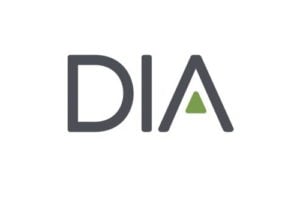Takeda’s Soon Yee Chow and Helene Sou, writing in the September 2022 edition of DIA’s Global Forum magazine, outline how digitalisation initiatives, if properly enacted, can help the ASEAN region achieve its vision of a free-trade market for high-quality and safe drugs across member states.
One key pillar of the Association of Southeast Asian Nations (ASEAN) as outlined in the (draft) ASEAN Pharmaceutical Regulatory Policy (APRP) is that:
ASEAN Member States should seek to ensure that unnecessary regulatory and administrative barriers to intra-ASEAN trade are eliminated. There should be established cooperation and information exchange between regulatory authorities and relevant stakeholders to combat the movement of substandard and falsified pharmaceutical products within the ASEAN region.
Furthermore, in 2021, ASEAN issued an official statement reinforcing the importance of digitalization across all sectors. This article focuses on several ongoing digital initiatives in ASEAN in the pharmaceutical sector and will highlight the status of implementation, including some challenges, in the region. In this sector, there is a wide variety of opportunities to achieve the benefits of digitalization. Digitalization can be used to optimize the drug development process and timelines through use of novel digital endpoints in clinical trials and use of digital health tools and technologies (DHTs) to collect patient data and facilitate decentralized trials.
Digitalization can also help achieve a higher efficiency in regulatory processes; e.g., through secured data sharing among regulators and applicants, virtual inspections/audits, and electronic submissions. It may also be applied in the drug supply chain to reduce the risk of counterfeit through serialization.
ASEAN and eCTD
The use of electronic Common Technical Documents (eCTD) was first introduced in 2003 and has now become the standard format for regulatory submission in major markets such as the US, Europe, and Japan. The eCTD format features a common folder structure, table of contents, and an XML backbone to enable the lifecycle of files for a product application to be managed individually. eCTD implementation brings multiple advantages to industry and regulatory authorities. It allows easy access and navigation to the information. eCTD also facilitates information exchange and the regulatory review process, lessening the burden of paper processing, and offer greater consistency and transparency in data management. However, adoption of a common eCTD format in ASEAN is still low, due to the existence of various country-specific requirements and health authorities’ expectations towards the harmonized approach. Presently, only Thailand accepts the eCTD format, while Singapore and Malaysia accept electronic submissions in CTD format through their own online system. In the Philippines, submission is done mainly via email, while digitalization of the submission portal is underway to accommodate online dossier submissions. In some instances, physical paper and DVD submission are still required in certain countries.
ASEAN and Cloud-Based Platforms
To read the full article, visit the DIA Global Forum website.



